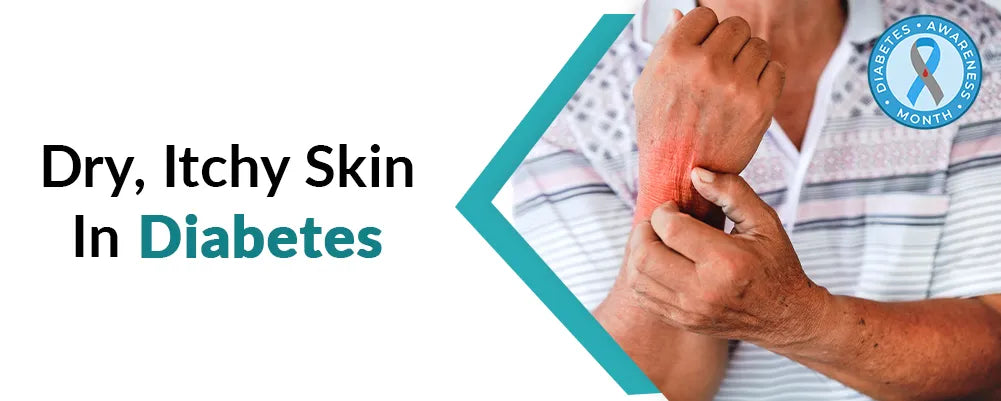Diabetes Related Skin Issues: Say Goodbye to Dryness and Itchiness

Diabetes isn't just about sugar levels, it can also affect your skin. People with diabetes often face skin problems because of high sugar levels and poor blood flow. If not taken care of, these problems can cause discomfort, infections, and lasting damage to the skin. The good news is, experts have some advice to help you manage and prevent these skin issues. Let's dive into these helpful recommendations.
- Maintain Optimal Blood Sugar Levels: The fundamental of diabetes management is controlling blood sugar levels. This extends to skin health, as high blood sugar can lead to dryness and itchiness. Consistently monitoring and managing blood sugar levels through medication, diet, and exercise is essential in preventing skin issues.

- Hydrate from the Inside Out: Adequate hydration is vital for maintaining healthy skin. Diabetes can increase the risk of dehydration, which may lead to skin dryness. Ensure you drink plenty of water throughout the day to keep your skin well-hydrated.Consuming foods rich in essential fatty acids, like fish, nuts, and flaxseeds, can help nourish your skin from the inside out. These nutrients can help maintain skin integrity and prevent dryness.
- Use Moisturisers: Moisturisers can be your best friend when it comes to combating dry skin. Opt for fragrance-free, hypoallergenic moisturisers and apply them daily. Pay extra attention to areas prone to dryness, such as elbows, knees, and feet.

- Use Foot Cream : People with diabetes are at an increased risk of developing foot problems due to complications associated with the condition, such as nerve damage and poor circulation. The nerves in the feet may be damaged, leading to a reduced ability to feel pain, temperature, or pressure. Additionally, diabetes can affect blood flow to the extremities, making it harder for wounds to heal. Therefore, taking care of the feet is important for people with diabetes, and using a foot cream helps.
- Protect Against Sun Exposure: Sunburn can be particularly problematic for individuals with diabetes, as it can lead to skin damage and complications. Use sunscreen and wear protective clothing when spending time outdoors to shield your skin from harmful UV rays.

- Manage Stress: Stress can exacerbate skin issues and make itchiness and dryness worse. Find stress management techniques that work for you, such as meditation, yoga, or deep breathing exercises.
- A Balanced Diet: Nutrition plays a significant role in skin health. A balanced diet that includes plenty of fruits and vegetables can provide essential vitamins and antioxidants to promote healthy skin. We recommend asking your doctor which fruits and vegetables you can have.
- Regular Exercise: Physical activity not only helps in managing blood sugar levels but also improves circulation, which is crucial for healthy skin. Incorporate regular exercise into your routine to keep your skin vibrant and healthy.
- Avoid Scratching: Itchy skin can be incredibly tempting to scratch, but doing so can lead to open sores and potential infections. Instead, use a cold compress, moisturiser, or an over-the-counter anti-itch cream to relieve discomfort.
- Consult a Dermatologist: If you experience persistent or severe skin issues, consult a dermatologist who specialises in treating diabetes-related skin complications. They can provide personalised advice and treatments tailored to your needs.
In conclusion, living with diabetes presents a unique set of challenges, and managing skin health is a critical part of the equation. The key to preventing diabetes-related skin issues like dryness and itchiness lies in a combination of diligent self-care, housing the right skincare products, healthy lifestyle choices, and expert guidance. By following these recommendations, individuals like Sarah can enjoy smoother, itch-free skin while effectively managing their diabetes. Remember, your skin is a reflection of your overall well-being, so take the time to care for it, and it will thank you in kind.
Read more - Common Skin Problems for Women: Causes, Symptoms & Treatments








